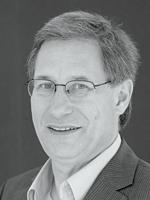Commentary
Democratic Security
EU Values Foresight
Society
Unlocked
Civil Society Is the Weak Element of European Defence Posture
30 October 2025
20 April 2021
An interview with Professor Detlef Pollack about massive opposition in 1989, today’s increasingly divided Europe and what form of dissent is possible in contemporary politics.
Detlef Pollack is a Professor of Sociology of Religion, Vice-Speaker of the Executive Board of the Cluster of Excellence “Religion and Politics” at Muenster University with research interests in religious changes in Western and Eastern Europe and in the US before and after 1989 as well as political culture in Eastern and East-Central Europe, particularly East Germany (GDR).
Considering the role of localities in 1989, Leipzig was a point of ignition for the mass protests in East Germany. As a witness to this historical shift, could you share your own experience? Why do you think Leipzig became a tipping point, and when did you realise that the point of no return had been reached? How did the relatively smaller acts of disobedience and dissent grow into mass and active opposition?

While in the late eighties there was hope that it is possible to move in a more liberal direction, I as well as most of my colleagues had no hope for a real regime change.